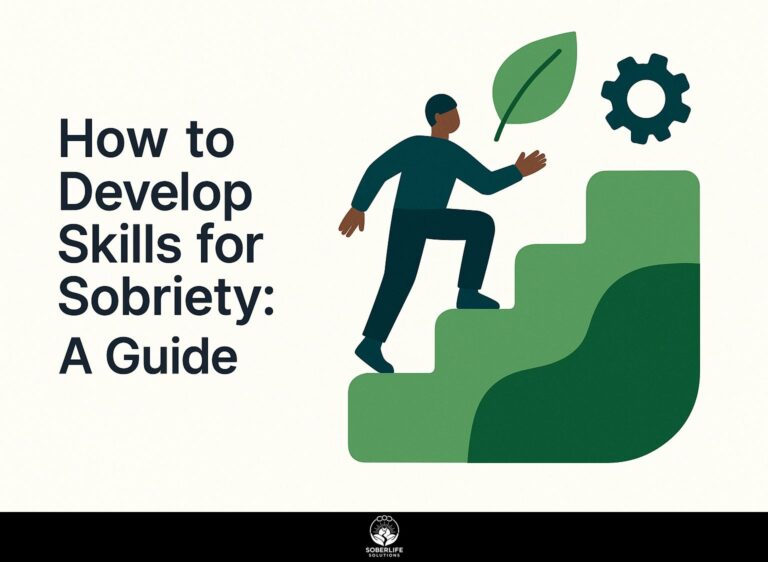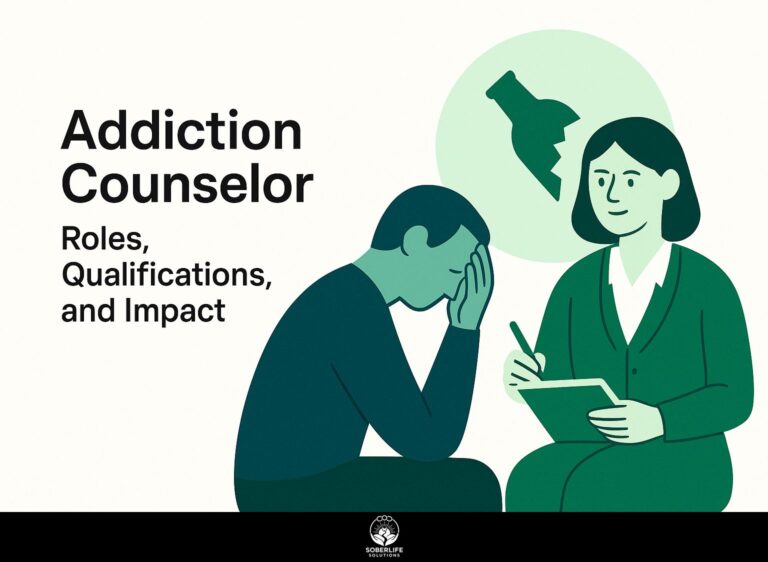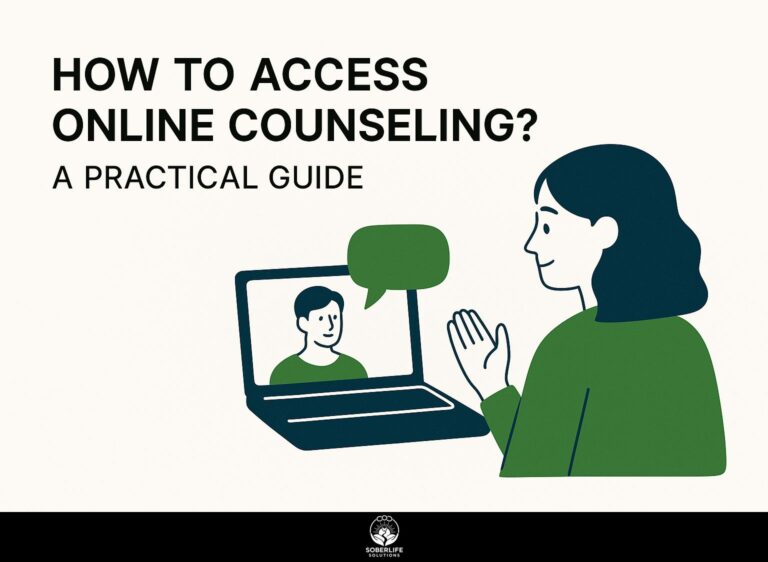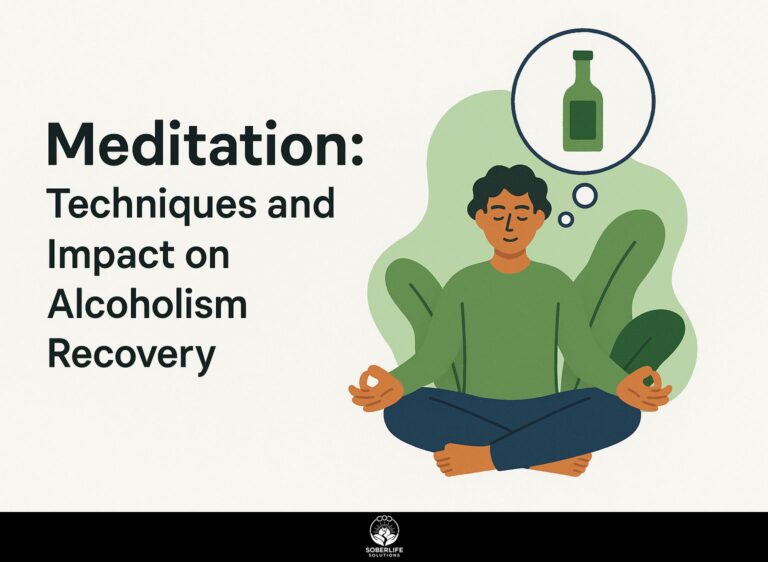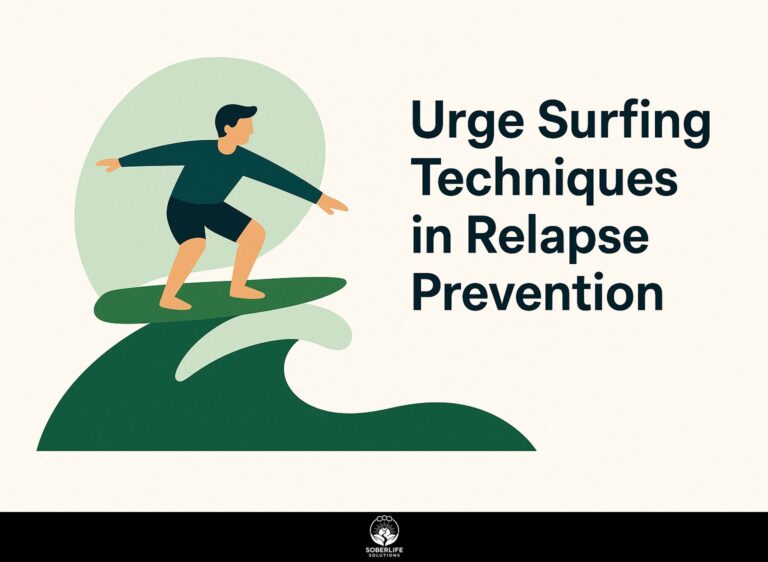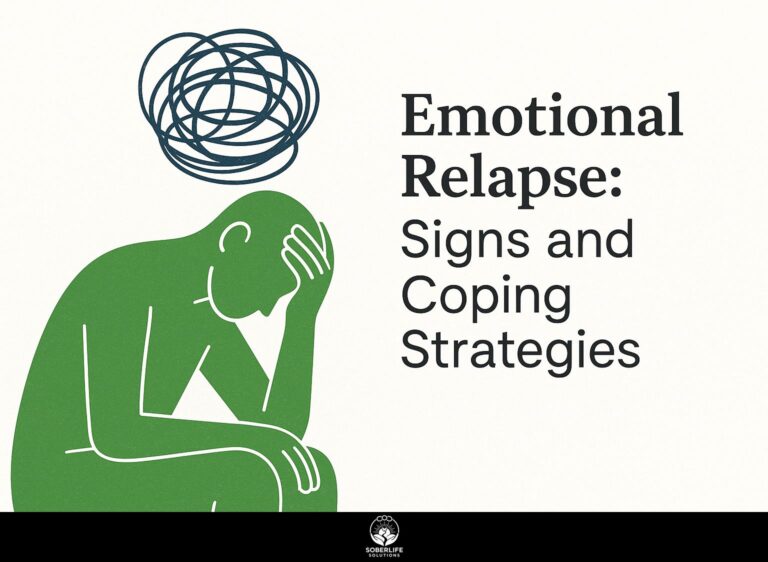Role of Online Peer Support Groups: Benefits and Impact
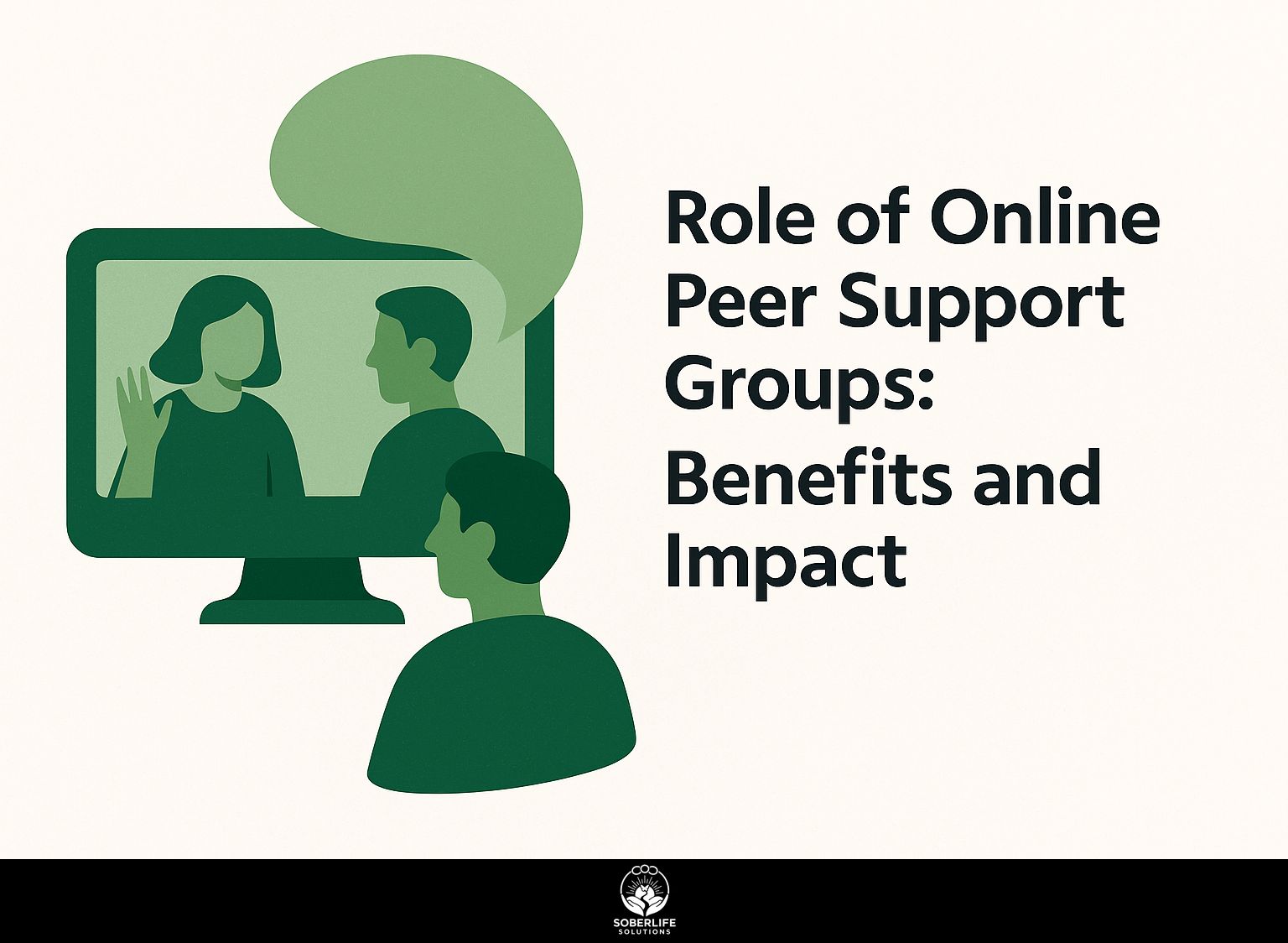
With technology making communication easy, online peer support groups have become important places for mental health. Platforms like Facebook create groups where people can support each other and work through their challenges together. This article looks at the deep benefits and effects of these online support networks, showing how they help improve emotional health and lessen feelings of loneliness. Learn how the Fellowship of shared experiences is changing lives.
Key Takeaways:
Definition and Overview
Online peer support groups are digital communities where individuals share experiences and provide emotional support, often focused on specific challenges like depression and anxiety.
During the COVID-19 pandemic, participation in these groups surged by 40%, highlighting their growing importance. Websites like Facebook and Reddit are popular places for people to connect, offering groups focused on specific interests.
For example, Facebook offers a variety of groups focusing on mental health, where members engage in discussions and share coping strategies. People who need help can use keywords like ‘anxiety support’ or ‘mental health warriors’ to find others with similar experiences, building a feeling of community and shared experiences. Peer support groups provide numerous benefits, as recent research findings published in Nature indicate that the impact of these online communities on mental health has become increasingly significant during lockdowns.
Historical Context
The concept of peer support dates back to the 1970s but gained significant traction online in the late 1990s with forums and now through social media platforms like Facebook.
The evolution has been marked by critical milestones such as the establishment of Alcoholics Anonymous in the 1930s, which laid the groundwork for structured peer support.
The rise of online forums in the late 1990s provided anonymity and accessibility, allowing individuals to connect without geographic limitations.
Moving into the 2000s, platforms like Reddit created spaces for niche communities, while recent advancements in mobile apps, such as 7 Cups, offer 24/7 peer support.
All regions have increased mental health services, making support easier to access and offering different options.
Benefits of Online Peer Support Groups
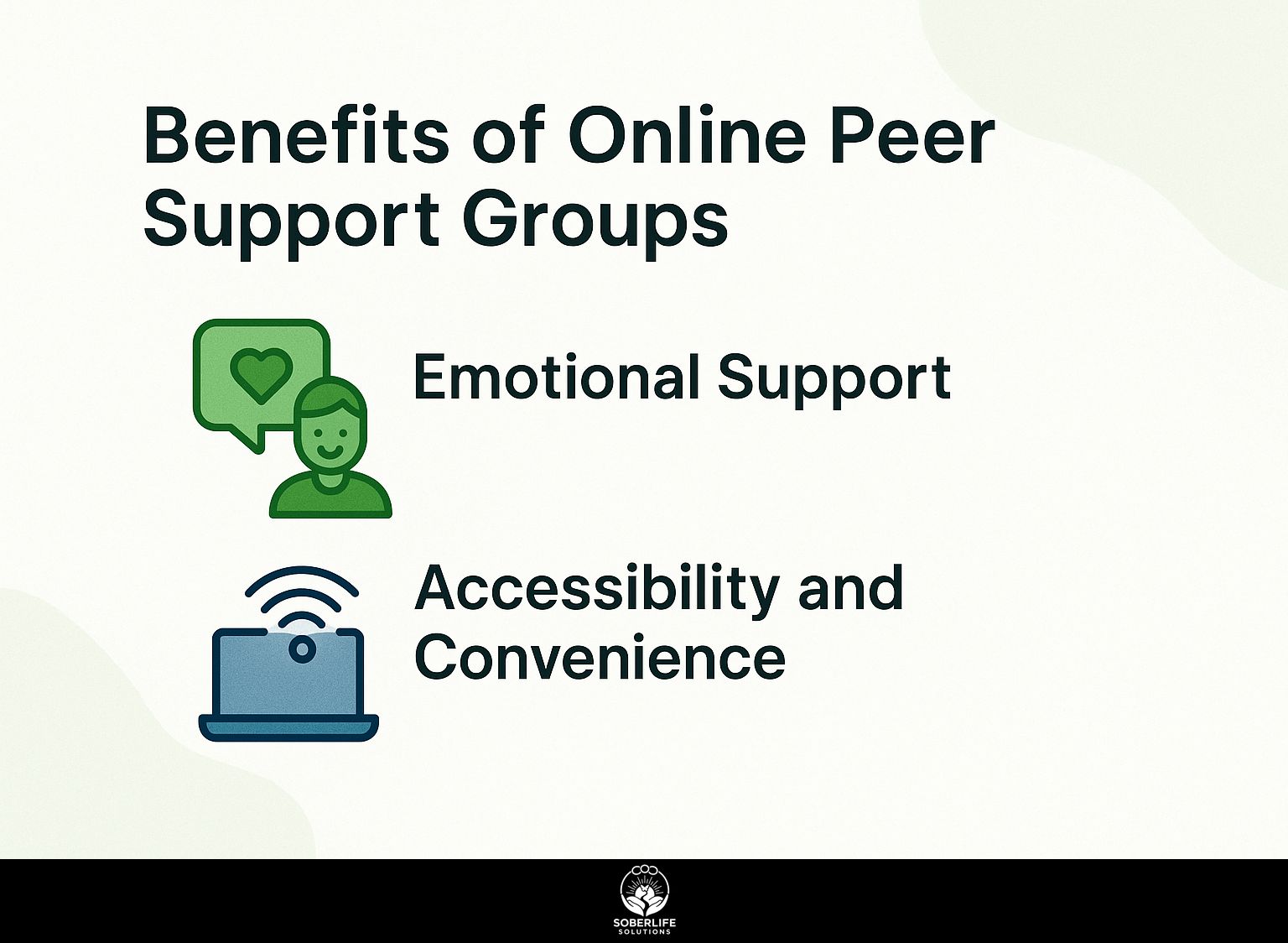
Online peer support groups offer many benefits, including emotional help and easier access for people dealing with different mental health issues. For a deeper understanding, explore the comprehensive definition and benefits of peer support groups that illustrate their value and activities.
Emotional Support
People in online peer support groups often say they feel better emotionally, with 70% feeling more supported.
These groups, often found on sites like Facebook or Discord, provide a secure place for people to talk about their experiences and ask for guidance.
For example, a study of a Facebook Group about managing anxiety showed that members often shared ways to cope and resources, creating a feeling of togetherness.
Tools like video calls and polls increase interaction, helping people connect more strongly.
Studies done with these groups reveal a noticeable rise in people’s self-confidence and ability to handle stress, highlighting how peer support benefits mental health. A recent publication from Psychology Today explores how social media and online communities can positively impact mental well-being.
Accessibility and Convenience
Online peer support groups increase accessibility for individuals with mobility issues or those living in remote areas, with a reported 50% of participants citing convenience as a key factor.
These groups often provide 24/7 availability, allowing members to connect when it suits them best.
For instance, individuals like Sarah, who is wheelchair-bound, found comfort in a virtual community during the COVID-19 pandemic, enabling her to share experiences and receive emotional support.
Platforms like Zoom and Discord help people talk to each other, allowing for the creation of secure areas for discussion.
Anonymity options allow participants to engage freely, resulting in deeper connections and shared experiences among diverse members.
Impact on Mental Health
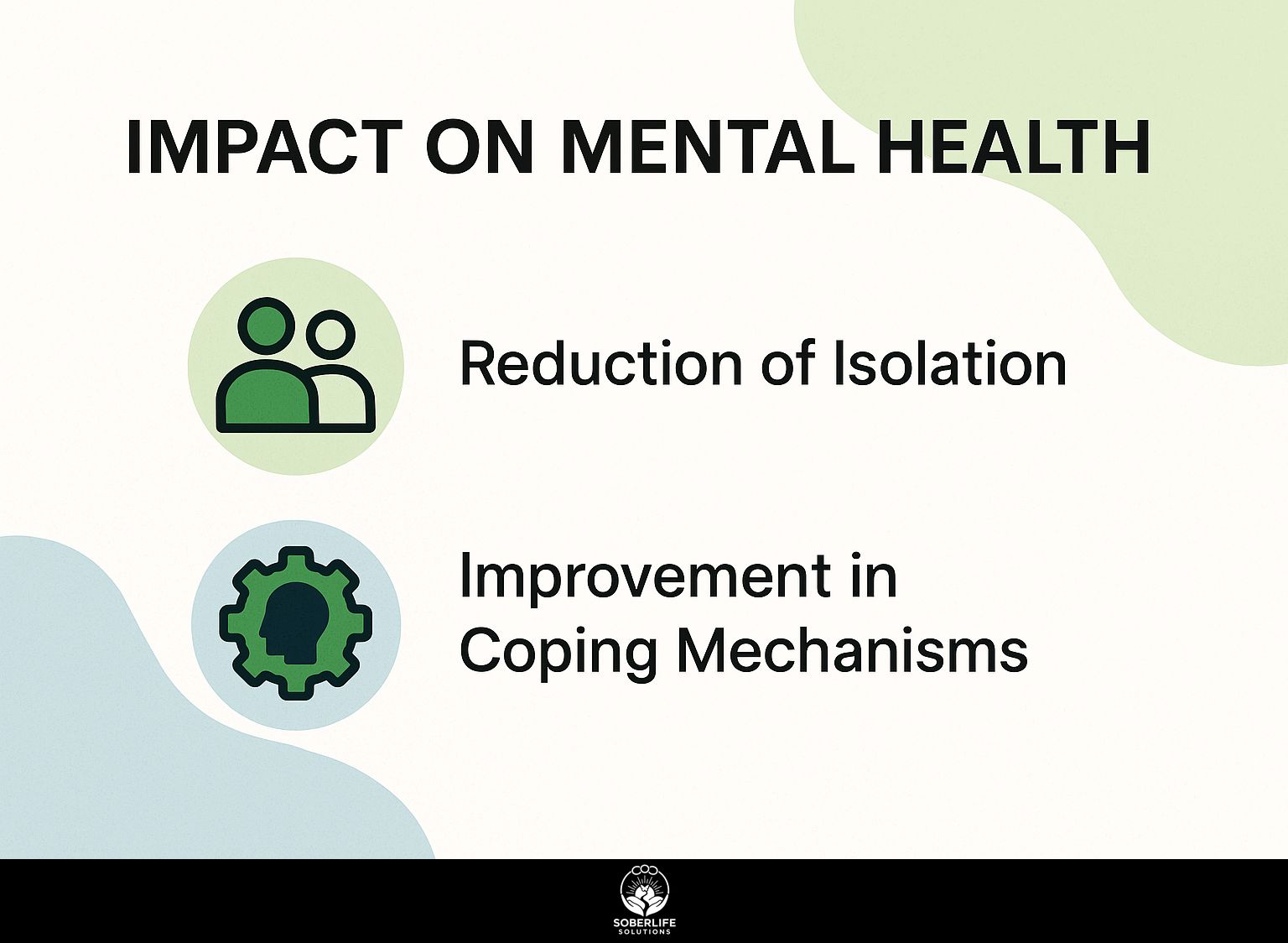
Online peer support groups greatly help mental health by lessening feelings of loneliness and helping participants handle stress better. For those looking to understand how peer support can be effectively utilized, exploring our guide on Peer Support Networks: Importance for Recovery can provide valuable insights into their crucial role in the recovery process.
Reduction of Isolation
Studies indicate that 60% of participants in online support groups experience a notable reduction in feelings of loneliness and isolation.
This welcoming setting enables people to talk about their experiences and give advice, helping them feel part of a community.
For instance, one user stated, “Finding this group helped me realize I’m not alone in my struggles, and that made a huge difference.” Another participant shared, “The encouragement I receive from others helps lift my spirits on tough days.”
Tools like Reddit, Facebook groups, and specialized forums provide platforms for such interactions, enabling users to connect, share resources, and receive emotional support from those who truly understand their challenges.
Improvement in Coping Mechanisms
Participants say they’ve learned better ways to handle stress, with 75% mentioning they’ve improved how they deal with stress thanks to discussions in peer groups.
This improvement is often attributed to specific psychological interventions, such as cognitive-behavioral techniques and mindfulness practices, which are frequently discussed in group settings.
For instance, participants engage in role-playing scenarios to reframe negative thought patterns or practice guided meditation to reduce anxiety.
User feedback shows that these methods help people feel included, leading to more emotional support. A lot of people find that talking about personal experiences during conversations helps confirm their emotions and provides different ways to deal with challenges.
Challenges Faced by Online Peer Support Groups
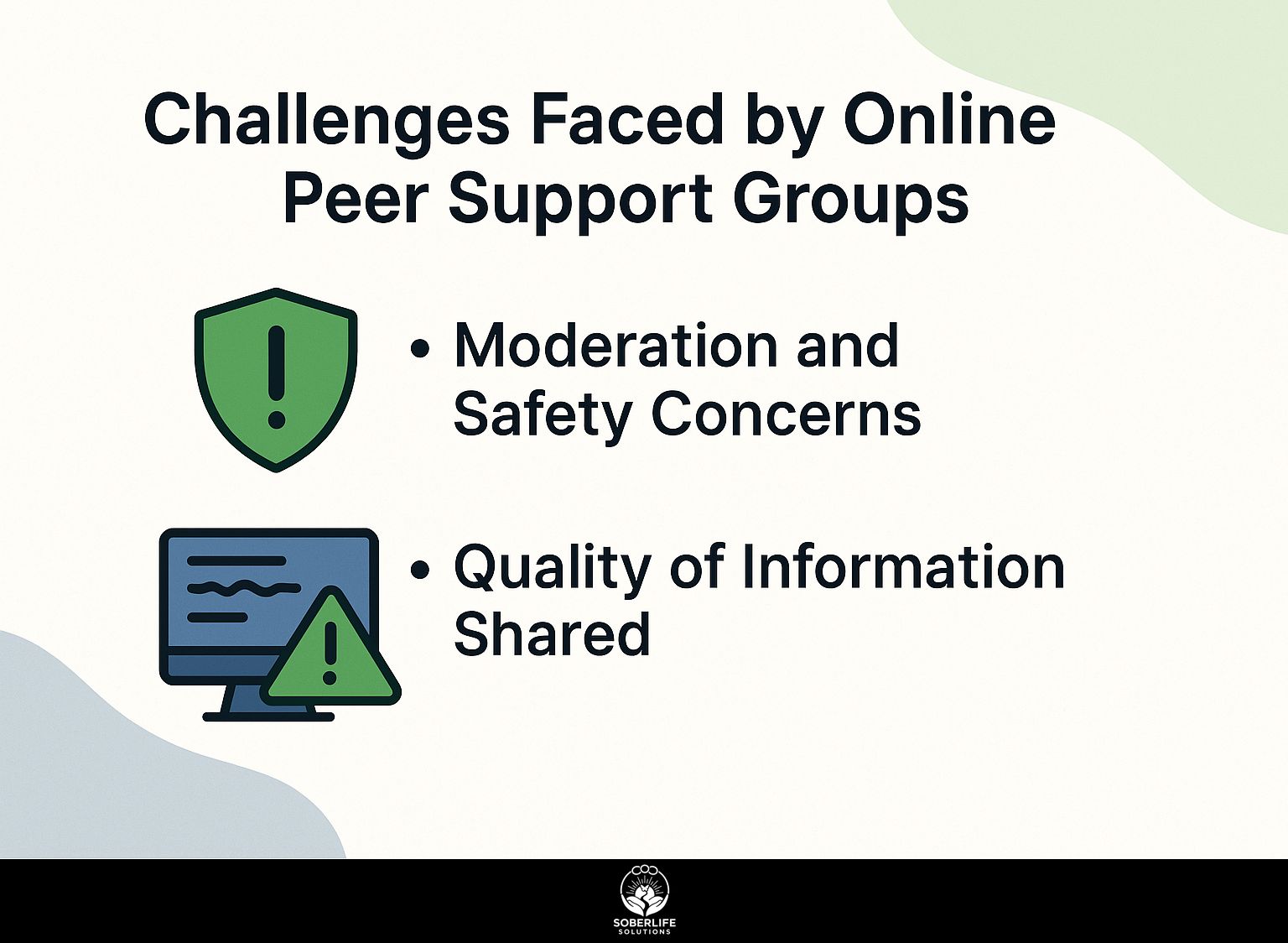
While online peer support groups offer advantages, they also face issues that can affect how well they work and how safe they are. One of the critical challenges is maintaining confidentiality within these groups, which is crucial for creating a safe and trusting environment.
Moderation and Safety Concerns
Safety concerns arise from the lack of professional moderation, with 40% of participants noting instances of misinformation in their groups.
To combat these issues, appointing trained moderators is essential. The moderators can be either unpaid members of the community or paid experts who know the topic and the community well, as recommended by Sprinklr’s comprehensive guide on community moderation best practices.
Setting clear rules for the community is important; these rules should describe what behavior is allowed and what happens if someone breaks them.
Tools like Discord’s built-in moderation bots or platforms like Community Moderation Software (CMS) can aid in monitoring discussions and flagging harmful content automatically.
Having monthly training sessions for moderators helps them stay informed about the best methods and community rules.
Quality of Information Shared
The information provided in online support groups can be very different, and this can be harmful, especially for people in need of help.
To make information more reliable, think about using particular methods.
- Start by promoting evidence-based resources, such as reputable medical websites like Mayo Clinic or WebMD. Encourage group members to cross-reference advice with these sources for accuracy.
- Integrating healthcare professionals into the group can also improve credibility; they can provide expert guidance alongside member experiences.
- Setting simple rules for sharing-such as checking where information comes from and adding references-can lead to a more trustworthy environment.
- Talking often about misinformation will help members learn how to find useful content.
Case Studies and Success Stories
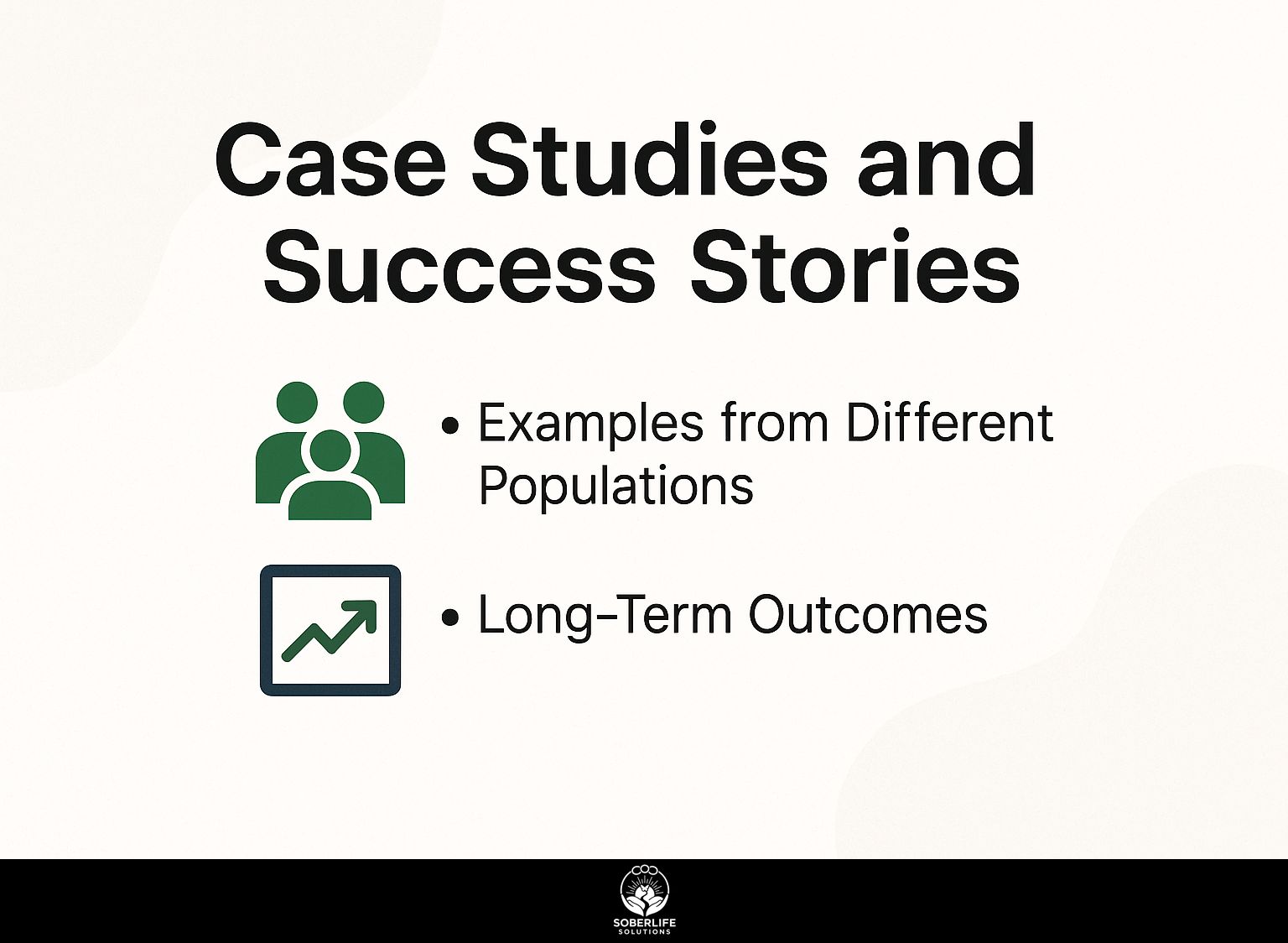
Case studies show the successful results of online peer support groups for different groups of people, highlighting how well they work in different situations.
Examples from Different Populations
Online peer support groups have helped many people, such as adults with anxiety, children dealing with bullying, and those with personality disorders, by providing significant positive experiences.
For adults with anxiety, groups like Anxiety and Depression Association of America (ADAA) create safe spaces for sharing coping strategies and personal stories.
Children can find help on platforms like StopBullying.gov, where they learn to understand their emotions and find friends who support them.
Individuals with personality disorders often find solace in groups such as the National Education Alliance for Borderline Personality Disorder (NEABPD). These organizations use online forums, live chats, and webinars to bring people together, giving them specific resources and building a feeling of community that is important for recovery.
Long-Term Outcomes
Research indicates that participants who engage in online peer support report sustained improvements in mental health over time, with 65% noting ongoing benefits.
These benefits can be further amplified by incorporating structured programs such as weekly video calls or forum discussions.
Using platforms like Zoom for direct conversations builds a sense of community, while Slack helps with real-time communication. The practice of journaling in shared Google Docs allows participants to reflect on their progress and support each other through commenting.
When people get involved in these activities, they stay motivated and form strong relationships that help them in their recovery process.
The Direction of Internet-Based Peer Support Groups
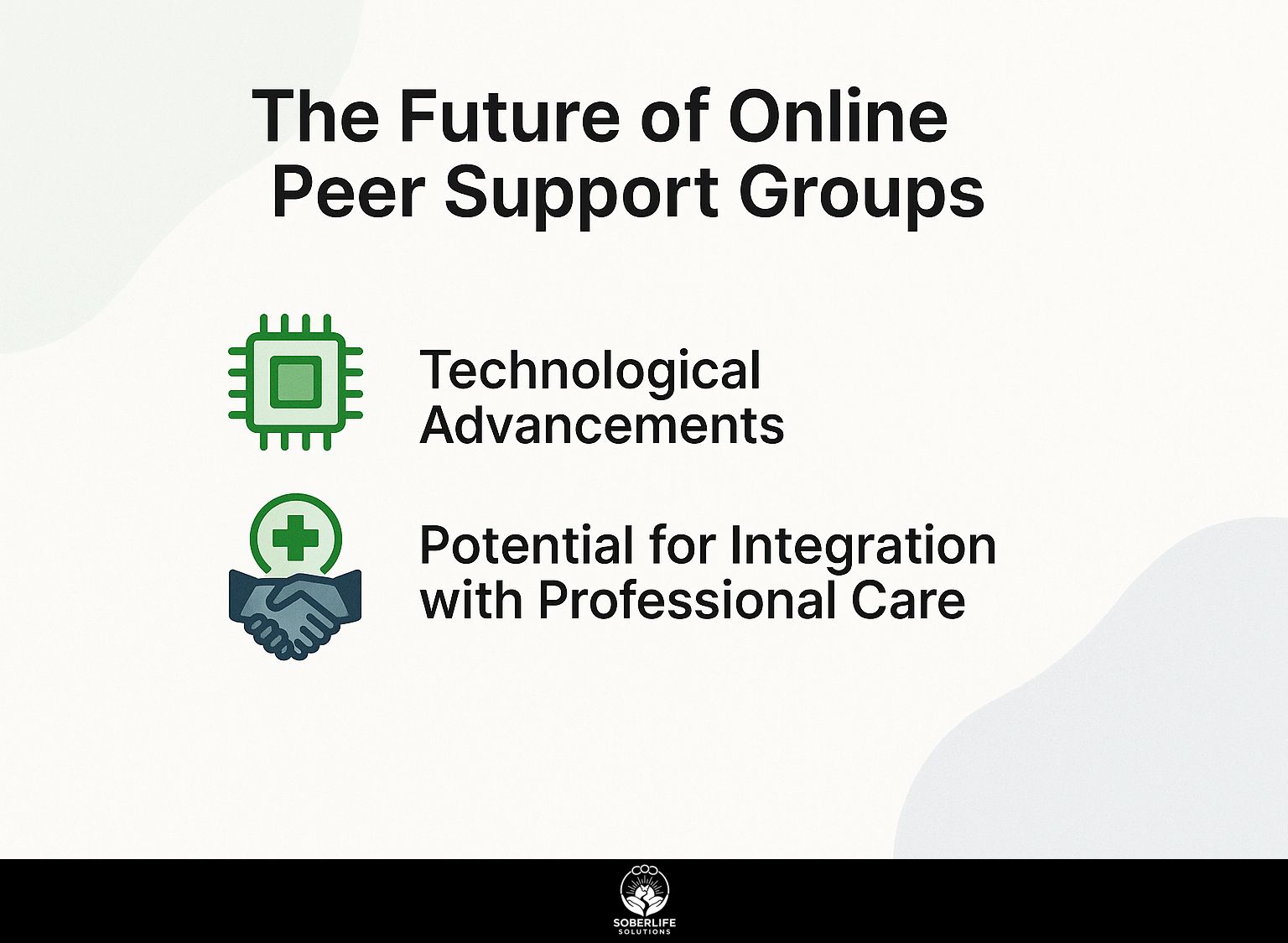
Online peer support groups are likely to grow in importance, helped by new technology and possible links to professional mental health services. Those curious about the technological advancements might appreciate our overview of various virtual peer support platforms and apps that are making these groups more accessible.
Technological Advancements
AI chatbots and mobile apps are updating how peer support is delivered, allowing more people to reach out and receive quick responses.
Platforms like Sanvello and Woebot use AI to give users quick help and coping methods designed for their specific needs.
Sanvello combines cognitive behavioral therapy (CBT) tools with a community feature, allowing users to engage with others facing similar challenges. Telehealth integrations like Talkspace offer virtual therapy sessions, enabling users to connect with licensed professionals seamlessly.
These technologies improve immediate peer support and help build long-lasting relationships through community involvement and expert advice.
Potential for Integration with Professional Care
Bringing together peer support and professional mental health services can create a complete support network for people facing mental health issues.
Peer support can work alongside professional services in various ways. For instance, organizations may implement peer-led groups where individuals share experiences and coping strategies, complemented by monthly check-ins with therapists.
Digital platforms like 7 Cups provide 24/7 access to trained listeners, creating a blend of immediate peer support and professional guidance. Programs that use both elements often see better treatment adherence and improved mental health results, showing that a combined method works well.
Frequently Asked Questions
What are online peer support groups and how do they work?
Online peer support groups are virtual communities where individuals facing similar challenges or struggles can connect and offer each other support, guidance, and encouragement. These groups typically have a designated platform or forum for members to interact and share their experiences and advice.
What are the benefits of participating in online peer support groups?
Some benefits of joining online peer support groups include feeling less alone, gaining a sense of community and support, receiving helpful advice and tips, and having a safe space to share personal experiences and feelings. These groups can help people feel stronger and more motivated to face their challenges.
How do online peer support groups impact individuals?
Joining online peer support groups can benefit people by offering a sense of acceptance and connection, helping to lessen feelings of being alone, and encouraging personal growth and improvement. These groups can also help individuals develop coping skills and strategies for managing their challenges.
Are online peer support groups effective?
There is evidence that shows that online peer support groups can be effective in providing support and promoting mental health. Research indicates that these groups can increase self-confidence, reduce symptoms of depression and anxiety, and help people feel more socially supported and connected.
Can anyone join an online peer support group?
Yes, most online peer support groups are open to anyone who is facing the same challenges or struggles as the group’s focus. Some groups might have certain rules or conditions for joining, so make sure to look over the group’s information before you become a member.
Are there any potential risks of participating in online peer support groups?
While there are many benefits to online peer support groups, it is essential to be cautious of potential risks. These can include encountering negative or harmful advice, experiencing conflict or drama within the group, or feeling overwhelmed by the amount of shared information. Looking after your mental health is important. Contact a professional for help if you require it.

